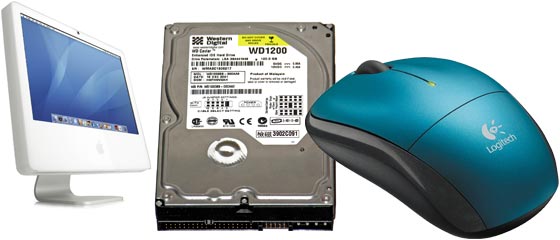 ![[Header]](../XuShared2/Line3.jpeg)

Add a Comment (Go Up to OJB's Blog Page) Who Needs Books?Entry 1315, on 2011-07-14 at 13:27:45 (Rating 1, Computers) As I write this I am returning from another trip to Australia, this time for an Apple support conference called "X World 2011" which was held in Sydney. It's a conference which discusses and demonstrates how to support, deploy and set up Apple equipment including servers, desktops, laptops, iPads, and iPhones.
Actually it was quite a useful experience because not only did I get some ideas about what other universities are doing but I also picked up a few tips I had either forgotten or (gasp) not known in the first place regarding Macs. I also realised there is a lot in Apple's server software which I have not had the opportunity to use, so I really need to set up an Apple server in a situation away from the restrictions of the university corporate environment (maybe I'll destroy my own network at home instead!)
One idea which seems to be gaining a lot of support is the use of iPads by university students, both to hold information such as textbooks and to act as an interactive teaching tool. Some universities are giving students an iPad (to use for their course and then to keep) while others are insisting that the student provides one themselves.
I certainly appreciate the iPad as a very compact and accessible information source. In a small form factor you get the equivalent of a small reference library, plus you get capabilities not available in conventional books such as animations, easy cross referencing to other ebooks and to the internet, and interaction with other apps on the device.
I haven't bought any traditional reading material for a year now because all of my technical material and fiction is now on the iPad. I have even been known to read on the iPhone for shorter periods of time if I'm somewhere without the iPad. I always have my phone with me (I just can't cope with parting from it) but the iPad, while it's a wonderful device for many things, is just a bit too big to carry everywhere.
So electronic books have a lot of advantages. They don't use up any real space: an iPad with 100 books on it takes the same space and weighs the same as one with no books; they can easily be updated: just connect to the Internet and download updated or corrected versions (as long as the licensing allows this); and they are even cheaper: one university is sourcing its electronic texts for just 60% of the price of the paper version. On the other hand many of the electronic books are a fairly poor effort at this early stage because many are just a copy of the paper version with no features making use of the technology. Obviously this will change in the future (at least I hope it will).
And let's not forget the environmental advantages. Sure, I agree that there is a significant environmental cost to actually making the iPad, but once you have it loading extra material costs almost nothing. There are no dead trees involved, no carbon produced by transport, etc. Surely this has got to be the way we store and use our information from now on.
Ironically I have to stop writing now because I'm not allowed to use electronic devices while the aircraft is taking off. Silly rule but I don't want to get thrown off the flight. I guess there are still a few occasions when the old fashioned paper books still have some advantages!
 There are no comments for this entry. 
You can leave comments about this entry using this form. To add a comment: enter a name and email (both optional), type the number shown above, enter a comment, then click Add.
Note that you can leave the name blank if you want to remain anonymous.
Enter your email address to receive notifications of replies and updates to this entry.
The comment should appear immediately because the authorisation system is currently inactive.
![[Comments]](../XuShared/Comment1B.jpeg) ![[Preview]](../XuShared/Comment6B.jpeg) ![[Blog]](../XuShared/Up2B.jpeg)
|

![[Comments]](../XuShared/Comment1B.jpeg)
![[Preview]](../XuShared/Comment6B.jpeg)
![[Blog]](../XuShared/Up2B.jpeg)